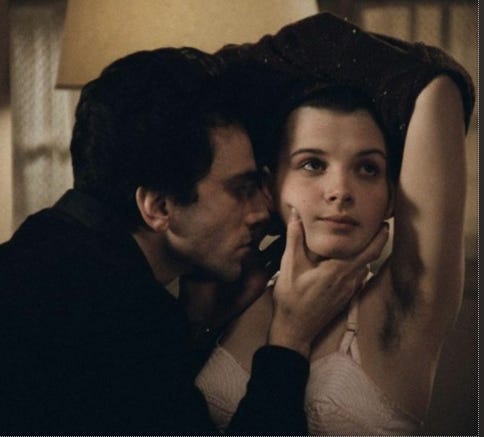Did [Republicans] really not know or are they merely making believe?
Milan Kundera agrees: “Nobody could have known!" is no defense for the willing blindness that enabled Trumpism.
“Nobody could have known!” is no defense for Republicans now dissociating themselves from the disastrous ramifications of Trumpism. Did they really not know or are they merely making believe?
I have watched the Serious Conservatives at the National Review and the Wall Steet Journal rend their garments in “shock” over President Donald Trump’s ridiculous and “unserious” Cabinet appointments, and it reminds me of the parable of Oedipus, as written by Milan Kundera in his Unbearable Lightness of Being. It is impossible that a Trump enabler was blind to the stupidity of their master—save willfully. They pantomime surprise that an ugly man who promised ugly things has done ugly things. Were they ignorant then? Or are they lying now?
In the end, the dispute narrowed down to a single question: Did they really not know or were they merely making believe?
Stupid or evil? I expect we will revisit this passage many, many times.
The Unbearable Lightness of Being
Part 5: Lightness and WeightThe story of Oedipus is well known: Abandoned as an infant, he was taken to King Polybus, who raised him. One day, when he had grown into a youth, he came upon a dignitary riding along a mountain path. A quarrel arose, and Oedipus killed the dignitary. Later he became the husband of Queen Jocasta and ruler of Thebes. Little did he know that the man he had killed in the mountains was his father and the woman with whom he slept his mother. In the meantime, fate visited a plague on his subjects and tortured them with great pestilences. When Oedipus realized that he himself was the cause of their suffering, he put out his own eyes and wandered blind away from Thebes.
Anyone who thinks that the Communist regimes of Central Europe are exclusively the work of criminals is overlooking a basic truth: the criminal regimes were made not by criminals but by enthusiasts convinced they had discovered the only road to paradise.
They defended that road so valiantly that they were forced to execute many people.
Later it became clear that there was no paradise, that the enthusiasts were therefore murderers.
Then everyone took to shouting at the Communists: You’re the ones responsible for our country’s misfortunes (it had grown poor and desolate), for its loss of independence (it had fallen into the hands of the Russians), for its judicial murders!
And the accused responded: We didn’t know! We were deceived! We were true believers! Deep in our hearts we are innocent!
In the end, the dispute narrowed down to a single question: Did they really not know or were they merely making believe?
Tomas followed the dispute closely (as did his ten million fellow Czechs) and was of the opinion that while there had definitely been Communists who were not completely unaware of the atrocities (they could not have been ignorant of the horrors that had been perpetrated and were still being perpetrated in postrevolutionary Russia), it was probable that the majority of the Communists had not in fact known of them.
But, he said to himself, whether they knew or didn’t know is not the main issue; the main issue is whether a man is innocent because he didn’t know. Is a fool on the throne relieved of all responsibility merely because he is a fool?
Let us concede that a Czech public prosecutor in the early fifties who called for the death of an innocent man was deceived by the Russian secret police and the government of his own country. But now that we all know the accusations to have been absurd and the executed to have been innocent, how can that selfsame public prosecutor defend his purity of heart by beating himself on the chest and proclaiming, My conscience is clear! I didn’t know! I was a believer! Isn’t his I didn’t know! I was a believer! at the very root of his irreparable guilt?
It was in this connection that Tomas recalled the tale of Oedipus: Oedipus did not know he was sleeping with his own mother, yet when he realized what had happened, he did not feel innocent. Unable to stand the sight of the misfortunes he had wrought by not knowing, he put out his eyes and wandered blind away from Thebes.
When Tomas heard Communists shouting in defense of their inner purity, he said to himself, As a result of your not knowing, this country has lost its freedom, lost it for centuries, perhaps, and you shout that you feel no guilt? How can you stand the sight of what you’ve done? How is it you aren’t horrified? Have you no eyes to see? If you had eyes, you would have to put them out and wander away from Thebes!



